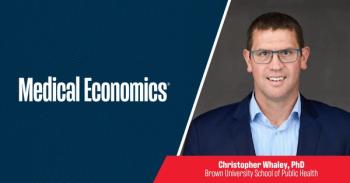
California enacts COVID-19 misinformation law for physicians
Unsupported claims could lead to license suspensions, revocations.
California physicians who spread misinformation about COVID-19 and treatments for that disease could face penalties under a new law.
Gov. Gavin Newsom signed Assembly Bill 2098, which designates “the dissemination of misinformation or disinformation related to the SARS-CoV-2 coronavirus, or ‘COVID-19,’ as unprofessional conduct.” Physicians found doing so could face sanctions from the state’s licensing boards and some news reports described the law as the first of its kind in the nation.
In the law
The
COVID-19 has claimed more than 6 million people globally and almost 90,000 state residents. It cites the U.S. Centers for Disease Control and Prevention (CDC) “that unvaccinated individuals are at a risk of dying form COVID-19 that is 11 times greater than those who are fully vaccinated.”
The federal medical agencies have ruled COVID-19 vaccines to be safe, but “the spread of misinformation and disinformation about COVID-19 vaccines has weakened public confidence and placed lives at serious risk,” the bill said.
News media have reported some of the most dangerous propagators of inaccurate information about the vaccines, are licensed health care professionals. The misinformation relates to phony claims about the nature and risks of the virus, its prevention and treatment, and the development, safety, and effectiveness of COVID-19 vaccines.
Governor’s statement
In a
“To be clear, this bill does not apply to any speech outside of discussions directly related to COVID-19 treatment with a direct physician patient relationship,” Newsom’s signing statement said. “I am concerned about the chilling effect other potential laws may have on physicians and surgeons who need to be able to effectively talk to their patients about the risks and benefits of treatments for a disease that appeared in just the last few years. However, I am confident that discussing emerging ideas or treatment including the subsequent risks and benefits does not constitute misinformation or disinformation under this bill’s criteria.”
Medical misinformation
The problem of COVID-19 misinformation and disinformation has been around for almost two years, and general medical misinformation has been an issue for decades, according to a review in the
The FSMB statement from July 2021 gained
A poll last year by the
FSMB reported
Newsletter
Stay informed and empowered with Medical Economics enewsletter, delivering expert insights, financial strategies, practice management tips and technology trends — tailored for today’s physicians.






